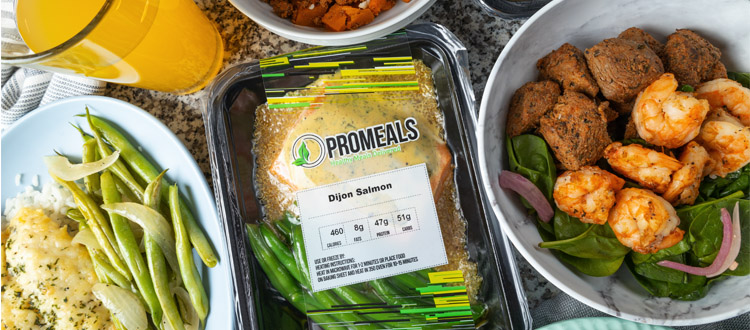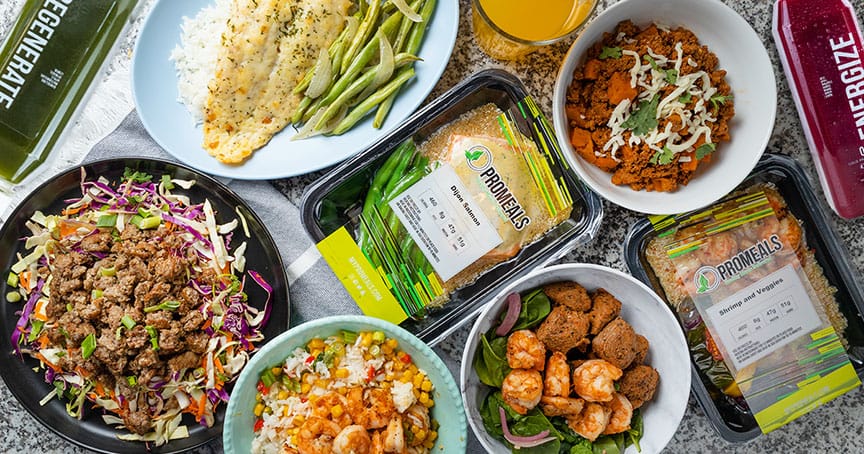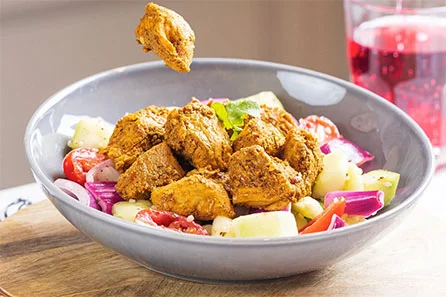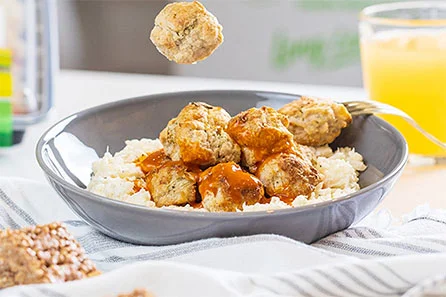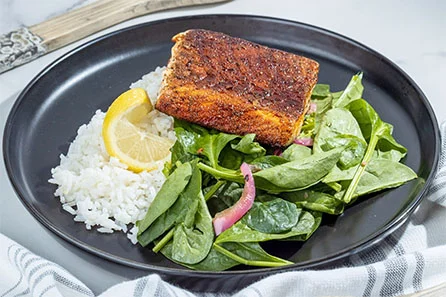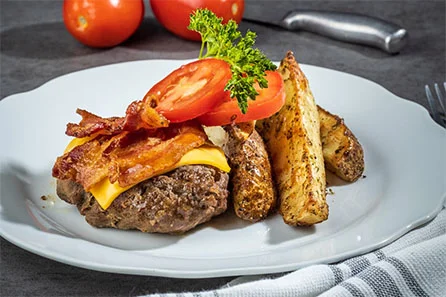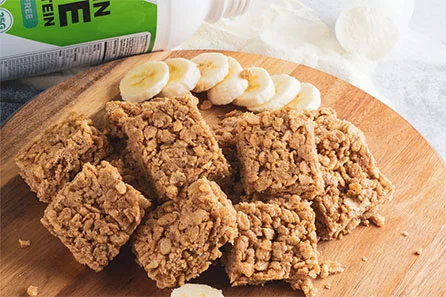Meal prepping can be a huge help in many areas of life. It can help you have more energy, reach your weight loss goals, and save money on groceries! If you're new to meal prepping or looking for some helpful tips, this guide is for you. We'll get into how to make the most out of your time when meal prepping and what foods are best for beginners.
Many people have a goal to eat healthier. Meal prep is a great way to reach that goal and stay on track with your diet. We all have those moments where we wonder how to meal prep for a week. Many people might think meal prepping is hard and stressful but you would be surprised that it's not as hard as people think. Plus, once you get started and develop a routine, meal prepping is actually really fun! It's also great because when done right, preparing your meals in advance will save you time and money (not to mention make your life easier)
HOW TO GET STARTED
- Make a list of the foods you eat and like to cook
- Figure out what your goals are, whether that's eating more vegetables or reducing your grocery bill
- Decide if you want to make one big batch of food each week or prep smaller batches throughout the week (it depends on how much time you have)

PLANNING YOUR MEALS
When deciding what meal plan will work best for you, take into consideration how many days per week you can realistically find time to prepare meals. If this is something that may be difficult with a busy schedule, try breaking it down by making two small batches instead of one large batch during the same day. You'll still save some money in preparation costs but won't have to do as much work on the day you're cooking.
FOODS FOR BEGINNERS
- Brown rice, quinoa, white rice
- Oatmeal or cereal for breakfast (oatmeal is usually cheaper)
- Frozen vegetables - these are great because they can be used at any time and don't require cooking
- Refrigerated vegetables - these are also great but require cooking before they're used
- Cooked meats, like chicken breasts or ground beef that can be added to pastas, salads, etc. for a ready meal with little prep time
Remember, not all food will work well with meal prepping so make sure the foods you include on your list fit within your goals! These items are good options for beginners looking to get started without breaking the bank. It may also be helpful to find some recipes online before getting started if this is a new endeavor and want some guidance in what meals might be best suited for dinner. Remember: there's no wrong way of doing it as long as you're enjoying healthy meals at regular intervals.
HOW LONG SHOULD MEAL PREP TAKE?
- It depends on what your goal is. If you're looking to just freeze some meals, it would take less time than if you were cooking a meal from scratch
- Plan for about an hour of prep work per day or 20 minutes every weekday morning (if doing smaller batches). Remember, this can vary depending on the type of food and how many people are eating
Carotenoids present in the green leafy vegetables will reduce your waistline; calcium is essential for muscle contraction which is present in higher amounts in all green leafy vegetables. Leafy vegetables neutralize free radicals, it can also fight against cancer, heart diseases, stroke, obesity, and osteoporosis.
WHEN SHOULD I MEAL PREP?
It's always best to start prepping early in the week but don't let that stop you! Just be sure not to overwork yourself by trying to cook all at once as well. Meal prepping should never feel like too much because then it won't last long before getting burned out. This will lead into you not wanting to meal prep anymore.
Meal Prep vs Eating Out
Eating out can be difficult for some people because when it's not made specifically how they want, there are other factors that don't contribute or consider what their needs might be.
Meal prep lets you control everything from ingredients and flavor profile to portion size so even if someone has a sensitive stomach such as gluten intolerance - meal prepping eliminates any worries about eating something that they may not enjoy!

Meal Prep vs Fast Food
Fast food is delicious but it can be a daunting task to find healthy options. Plus, meal prepping makes you feel better about what you're eating help you reach your goals.
Meal prep keeps portions in check so even if there's some left over for the next day or two - no one will get too full off of just one meal!
HOW DO YOU FIGURE OUT PORTION SIZES?
Figure out how many meals you'll be eating in a day and divide the calories or macros accordingly. You can use our ProMeals Calorie Calculator tool to get a basic idea of your daily caloric intake. It is also important to figure out what type of foods will go into each meal (for example what proteins, carbs, and fats) in order to hit the desired calorie/macro intake.
ARE THERE ANY FOODS I SHOULD AVOID?
Yes! Foods that should be avoided include any foods with added sugar or high amounts of processed carbohydrates such as sugary cereal and sweetened yogurt. These are typically called "empty calories" and can leave some people feeling bloated or hungry soon after eating.
MEAL PREP LIKE A PRO!
REMEMBER 3 BASIC RULES:
- Plan out ahead of time what you're going to make and how much
- Cook in bulk, especially if there's leftovers
- Stick with your plan - it helps to have a routine when meal prepping so that you can save money on groceries and not waste food!
Follow these basic rules and you are on your way to a healthier lifestyle!
Now lets move to containers...
WHERE SHOULD I STORE MY MEAL PREP?
Using containers to store your prepped meals is a great option for those who don't have the time or space to cook and prepare. There are some important factors to keep in mind when selecting what type of container.
- Glass, ceramic or metal containers can be microwaved but might not be dishwasher safe
- Plastic storage bins with lids are great for storing and transporting food
- There are also some containers available that can be heated in the microwave or oven, this is a good option if you don't want to have to deal with separate dishes!
HOW DO I CHOOSE CONTAINERS?
In order to choose the right type of container take into account what your typical day looks like and what will work best for your lifestyle.
If you're at home all day then glass containers are a great option because they can be microwaved and cleaned in the dishwasher.
Plastic storage bins are popular if someone spends most of their day out and about as these don't require any special care to clean.
HOW BIG SHOULD MEAL PREP CONTAINERS BE?
Containers should be large enough for the amount of food you are packing up. If it's a protein, vegetable and carb - plan on it being three separate containers. For one meal, aim to have at least two cups so there is not too much leftover. There are a few different container options for meal prepping that all have their own pros and cons. Think about what works best for your lifestyle to help make the decision easier!

HOW DO YOU FIND THE MOTIVATION TO MEAL PREP EVERY WEEK?
Make a plan for what you're going to make and how much - it can be hard to cook in bulk if someone doesn't have the space or time! Not having any flexibility with plans also makes meal prepping more difficult. Figure out your personal motivation by asking yourself.
What is my goal? Whether that's weight loss, getting healthier, improving athletic performance etc. The answer will help dictate how often you should meal prep.
How long do I want this process/habit to last? If it's just temporary then figure out what frequency works best but if you are looking for something sustainable like weight loss - aim for at least once every week or two weeks so as not to become overwhelmed. But most importantly remember that your goals are what you want them to be and it's important to listen to your inner voice! Ask yourself the question; Does this feel like something I can actually do? If not then start with smaller goals until they become more manageable. As time goes on, the process will get easier as well.

